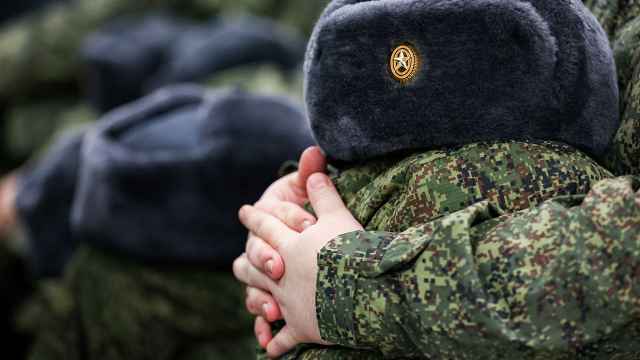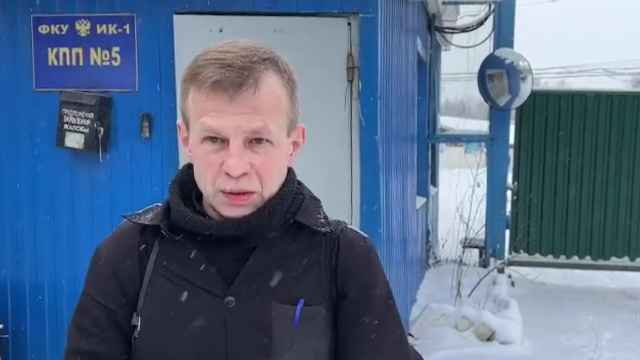MINSK — It's noon in Minsk and student Denis Sherbachevich has been waiting for five hours to buy the dollars he needs to pay his rent.
"I have no choice but to stand in this line," the 24-year-old said as he jostled at a foreign-exchange kiosk near Victory Square in Minsk last week. "My landlord demands I pay in dollars or get out, but nobody wants to buy rubles."
Belarussians are on edge like no other time since President Alexander Lukashenko came to power in 1994. Last month a bomb in the Minsk subway left 14 people dead and about 200 injured. Speculation is now increasing that a faltering economy will force a devaluation of the ruble.
Lukashenko declared a crisis and called the attack and the currency shortage "links in the same chain" that are designed to destabilize his government. At the same time, the former collective farm boss remains under sanctions from the United States and European Union.
He may also be at risk of the kind of unrest that toppled leaders in Tunisia and Egypt, said Chris Weafer, chief strategist at UralSib in Moscow.
"This is more serious for Lukashenko than anything he's faced since the collapse of the Soviet Union," Weafer said. "As an authoritarian leader of a weak economy, he knows all the factors are there for Middle East-style instability. It is chickens coming home to roost in Belarus."
The International Monetary Fund said the real reason for a gap in Belarus' current account equal to 16 percent of gross domestic product was Lukashenko's "unsustainable" spending last year before he won a fourth term in the December election.
The IMF agreed to loan Belarus $3.44 billion during the credit crisis and last month urged the country to curtail spending, raise interest rates and liberalize the exchange rate as foreign reserves slid $262 million to an 18-month low of $3.8 billion. The central bank raised its refinancing rate by 1 percentage point on April 13 to 13 percent, the world's second highest, behind Pakistan, among countries tracked by Bloomberg.
Fears of a return to the dark days of the 1990s, when the ruble plunged more than 95 percent as Belarus struggled in the aftermath of the Soviet collapse and Russia's $40 billion default in August 1998, has spurred runs on sugar, sunflower oil, gold bars and even subway tokens.
To keep imports coming in, the central bank was forced on April 19 to abolish restrictions on foreign-currency trading in the interbank market, where the ruble has since slumped more than 40 percent against the dollar.
With banks effectively shutting down foreign-currency sales and withdrawals and a black market emerging, the government will this month liberalize the market, allowing the ruble to weaken about 20 percent from the central bank's official rate, Economy Minister Nikolai Snopkov said in an April 26 interview.
After ramping up spending by 38 percent last year to fund a 50 percent increase in wages for state workers and subsidies to farmers and machinery manufacturers, Belarus needs to avoid defaulting on $2.1 billion of foreign bonds.
The yield on Belarus' first-ever eurobond, sold in July, soared to a record 12.37 percent on March 23, from 8.27 percent when it first started trading on July 30. Standard & Poor's cut the country's credit rating by one level on March 15 to B, five steps below investment grade, because of "pressures" on the exchange rate and Belarus' "external vulnerability."
At the Sombelbank exchange kiosk outside of Euroopt, one of Minsk's largest supermarkets, three middle-aged women in tracksuits and sneakers organize orders for dollars and euros from passersby with wads of rubles.
Seated on foldout chairs under a "No Currency" sign, the women write down the names of people seeking foreign currency in the order in which they arrive. If a name is called and the person isn't there, then bad luck.
People wait for days to sell their rubles, often sleeping in their cars in the parking lot or organizing into teams to split waiting duties, said one of the women, who declined to be identified because of concern police will think she's illegally trading currency for profit. Transactions are limited to $1,000 apiece, and those who want more have to start at the end of the list, the woman said.
Belagroprombank, the nation's second-biggest lender, can sell a dollar for as much as 5,150 rubles on the interbank market. That leaves little incentive to sell to individuals at a rate that can't deviate from the official one set by the central bank. It was 3,013 rubles per dollar Tuesday.
With dollars virtually nonexistent, Belarussians like Georgy have been raiding the supermarkets.
The 59-year-old, who is just months from retirement, bought 20 kilograms of sugar at the Gippo supermarket in the working-class Minsk suburb of Serebryanka.
"I wanted to buy everything on the shelf, but there was an old man in the queue behind me who also wanted sugar so I left him a few kilos," said Georgy, who declined to give his full name and enlisted his son-in-law to drive the booty home.
Sugar sales in Minsk rose to a record on April 12, the day after the subway bombing, spurring a government order for state-owned sugar plants to replenish shops and wholesalers.
On the same day, 100 tons of cooking oil were sold in Minsk, three times the daily average, the BelTA news service said, citing the city's government.
In a nation where a one-kilogram gold bar costs 109 times the average monthly wage of $505, the central bank sold out of gold and silver bars in Minsk on April 15, Euroradio reported. Subway ticket offices in the capital have posted "one token per person" signs as a warning to hoarders.
The central bank has said it will avoid an "overnight" devaluation of the ruble akin to the 21 percent tumble allowed on Jan. 6, 2009, when frozen global credit markets choked investment in the nation of 9.5 million people. Lukashenko vowed to prosecute those who spread "scandalous speculation" about the food and currency situations, in discussions with his staff on April 13.
Back at Victory Square, Denis Sherbachevich is playing a computer game on his laptop to pass time in the waiting line.
"It's really worrying as I also got a loan in dollars for my new TV set," he said. "All I can do is wait."
A Message from The Moscow Times:
Dear readers,
We are facing unprecedented challenges. Russia's Prosecutor General's Office has designated The Moscow Times as an "undesirable" organization, criminalizing our work and putting our staff at risk of prosecution. This follows our earlier unjust labeling as a "foreign agent."
These actions are direct attempts to silence independent journalism in Russia. The authorities claim our work "discredits the decisions of the Russian leadership." We see things differently: we strive to provide accurate, unbiased reporting on Russia.
We, the journalists of The Moscow Times, refuse to be silenced. But to continue our work, we need your help.
Your support, no matter how small, makes a world of difference. If you can, please support us monthly starting from just $2. It's quick to set up, and every contribution makes a significant impact.
By supporting The Moscow Times, you're defending open, independent journalism in the face of repression. Thank you for standing with us.
Remind me later.






